Creator Bill Willingham warned us something was coming, and now he’s launched a nuclear bomb: declaring that he’s making Fables, his beloved classic Vertigo series, public domain.
Can he do this? What led up to it? What does it mean? So many questions.
The Beat reached out to DC Comics to respond and they had no comment.
In a Substack newsletter Willingham released a statement, reproduced below. The short version is that he is unhappy doing business with the current purveyors of DC Comics – with complaints about editorial control and royalty payments. In response – as a sort of protest – he’s making Fables public domain.
Fables debuted in 2002, from Vertigo Comics, and ran for #150 issues, becoming one of Vertigo’s most successful titles ever. It spawned a dozen best selling graphic novels and a plethora of spin-offs, all based on the idea of a fairy tale world co-existing in the real world. While Fables was often optioned for media, it never made it to the finish line – although suspiciously similar ideas like Once Upon a Time did.
Fables was brought out of retirement in 2022 with the spin-off Batman vs. Bigby! A Wolf in Gotham and a 12-issue continuation of the main series – althought with Vertigo gone, they were now published under the more adult Black Label imprint.
But issues were slow to appear. Earlier this week Willingham started rumbling on twitter about the slow pace, saying he’d turned in his scripts two years ago and threatening to “fire DC.”
In answer to far too many requests, I’m tempted to explain the delays in issues of Fables: The Black Forest, since DC refuses to do so. Short version: I handed in every script more than two years ago, and, for multiple reasons, haven’t worked with/for DC since. I fired them.
Today the press release went out and he says he is assigning the copyright of Fables to the public domain in protest over DC’s treatment of him. This kind of sums it up (tho you’ll want to read the whole thing:
Note that my contracts with DC Comics are still in force. I did nothing to break them, and cannot unilaterally end them. I still can’t publish Fables comics through anyone but them. I still can’t authorize a Fables movie through anyone but them. Nor can I license Fables toys nor lunchboxes, nor anything else. And they still have to pay me for the books they publish. And I’m not giving up on the other money they owe. One way or another, I intend to get my 50% of the money they’ve owed me for years for the Telltale Game and other things.
However, you, the new 100% owner of Fables never signed such agreements. For better or worse, DC and I are still locked together in this unhappy marriage, perhaps for all time.
But you aren’t.
If I understand the law correctly (and be advised that copyright law is a mess; purposely vague and murky, and no two lawyers – not even those specializing in copyright and trademark law – agree on anything), you have the rights to make your Fables movies, and cartoons, and publish your Fables books, and manufacture your Fables toys, and do anything you want with your property, because it’s your property.
Mark Buckingham is free to do his version of Fables (and I dearly hope he does). Steve Leialoha is free to do his version of Fables (which I’d love to see). And so on. You don’t have to get my permission (but you might get my blessing, depending on your plans). You don’t have to get DC’s permission, or the permission of anyone else. You never signed the same agreements I did with DC Comics.
Is this accurate? A look at a random indicia of an issue of Fables reveals this:
Based in this, it would seem that Willingham and DC Comics share copyright, while Willingham owns the trademarks. EDITED TO ADD: But it could mean a LOT OF THINGS.
Now, I’m NO COPYRIGHT LAWYER, and I don’t have copies of DC contracts at hand, so going on face value, what Willingham seems to have done is assign his share of the copyright to the public domain. This does NOT include previously published materials, however.
So basically, you could take, say, Bigby Wolf and Prince Kit Charming and write a story or comic that ships them to your hearts content. Or take any of the characters and settings and world building (of which there was a LOT) and write your own stories using these elements.
It’s kind of like, say Tarzan. You can write your own stories since the first ten books in the series are in the public domain but you can’t print your own editions of the later books. And the Edgar Rice Burroughs estate maintains control of the trademarks to the characters.
But this is all a very LAYMAN’S INTERPRETATION of what has happened. The big question is what DC would do if you DID print your own all new Bigby Wolf comics. Would they sue your pants off? Or throw up their hands?
It’s not Willingham’s first copyright tussles, as sadly his first breakout work, Elementals, fell prey to Comico’s bankruptcy and is now owned by eccentric millionaire Andrew Rev, a situation Willingham has fought for years, with Dynamite getting involved in a battle for the trademark.
This story is just breaking and developing and you can bet that the ICC (internet comics community) whatever there is of it, will be buzzing about this for a while. And maybe buy Gamal Hennessey’s book while your’e at it.
Willingham’s complete statement follows.
The Lede
As of now, 15 September 2023, the comic book property called Fables, including all related Fables spin-offs and characters, is now in the public domain. What was once wholly owned by Bill Willingham is now owned by everyone, for all time. It’s done, and as most experts will tell you, once done it cannot be undone. Take-backs are neither contemplated nor possible.
Q: Why Did You Do This?
A number of reasons. I’ve thought this over for some time. In no particular order they are:
1) Practicality: When I first signed my creator-owned publishing contract with DC Comics, the company was run by honest men and women of integrity, who (for the most part) interpreted the details of that agreement fairly and above-board. When problems inevitably came up we worked it out, like reasonable men and women. Since then, over the span of twenty years or so, those people have left or been fired, to be replaced by a revolving door of strangers, of no measurable integrity, who now choose to interpret every facet of our contract in ways that only benefit DC Comics and its owner companies. At one time the Fables properties were in good hands, and now, by virtue of attrition and employee replacement, the Fables properties have fallen into bad hands.
Since I can’t afford to sue DC, to force them to live up to the letter and the spirit of our long-time agreements; since even winning such a suit would take ridiculous amounts of money out of my pocket and years out of my life (I’m 67 years old, and don’t have the years to spare), I’ve decided to take a different approach, and fight them in a different arena, inspired by the principles of asymmetric warfare. The one thing in our contract the DC lawyers can’t contest, or reinterpret to their own benefit, is that I am the sole owner of the intellectual property. I can sell it or give it away to whomever I want.
I chose to give it away to everyone. If I couldn’t prevent Fables from falling into bad hands, at least this is a way I can arrange that it also falls into many good hands. Since I truly believe there are still more good people in the world than bad ones, I count it as a form of victory.
2) Philosophy: In the past decade or so, my thoughts on how to reform the trademark and copyright laws in this country (and others, I suppose) have undergone something of a radical transformation. The current laws are a mishmash of unethical backroom deals to keep trademarks and copyrights in the hands of large corporations, who can largely afford to buy the outcomes they want.
In my template for radical reform of those laws I would like it if any IP is owned by its original creator for up to twenty years from the point of first publication, and then goes into the public domain for any and all to use. However, at any time before that twenty year span bleeds out, you the IP owner can sell it to another person or corporate entity, who can have exclusive use of it for up to a maximum of ten years. That’s it. Then it cannot be resold. It goes into the public domain. So then, at the most, any intellectual property can be kept for exclusive use for up to about thirty years, and no longer, without exception.
Of course, if I’m going to believe such radical ideas, what kind of hypocrite would I be if I didn’t practice them? Fables has been my baby for about twenty years now. It’s time to let it go. This is my first test of this process. If it works, and I see no legal reason why it won’t, look for other properties to follow in the future. Since DC, or any other corporate entity, doesn’t actually own the property, they don’t get a say in this decision.
Q: What Exactly Has DC Comics Done to Provoke This?
Too many things to list exhaustively, but here are some highlights: Throughout the years of my business relationship with DC, with Fables and with other intellectual properties, DC has always been in violation of their agreements with me. Usually it’s in smaller matters, like forgetting to seek my opinion on artists for new stories, or for covers, or formats of new collections and such. In those times, when called on it, they automatically said, “Sorry, we overlooked you again. It just fell through the cracks.” They use the “fell through the cracks” line so often, and so reflexively, that I eventually had to bar them from using it ever again. They are often late reporting royalties, and often under-report said royalties, forcing me to go after them to pay the rest of what’s owed.
Lately though their practices have grown beyond these mere annoyances, prompting some sort of showdown. First they tried to strong arm the ownership of Fables from me. When Mark Doyle and Dan Didio first approached me with the idea of bringing Fables back for its 20th anniversary (both gentlemen since fired from DC), during the contract negotiations for the new issues, their legal negotiators tried to make it a condition of the deal that the work be done as work for hire, effectively throwing the property irrevocably into the hands of DC. When that didn’t work their excuse was, “Sorry, we didn’t read your contract going into these negotiations. We thought we owned it.”
More recently, during talks to try to work out our many differences, DC officers admitted that their interpretation of our publishing agreement, and the following media rights agreement, is that they could do whatever they wanted with the property. They could change stories or characters in any way they wanted. They had no obligation whatsoever to protect the integrity and value of the IP, either from themselves, or from third parties (Telltale Games, for instance) who want to radically alter the characters, settings, history and premises of the story (I’ve seen the script they tried to hide from me for a couple of years). Nor did they owe me any money for licensing the Fables rights to third parties, since such a license wasn’t anticipated in our original publishing agreement.
When they capitulated on some of the points in a later conference call, promising on the phone to pay me back monies owed for licensing Fables to Telltale Games, for example, in the execution of the new agreement, they reneged on their word and offered the promised amount instead as a “consulting fee,” which avoided the precedent of admitting this was money owed, and included a non-disclosure agreement that would prevent me from saying anything but nice things about Telltale or the license.
And so on. There’s so much more, but these, as I said, are some of the highlights. At that point, since I disagreed on all of their new interpretations of our longstanding agreements, we were in conflict. They practically dared me to sue them to enforce my rights, knowing it would be a long and debilitating process. Instead I began to consider other ways to go.
Q: Are You Concerned at What DC Will Do Now?
No. I gave them years to do the right thing. I tried to reason with them, but you can’t reason with the unreasonable. They used these years to make soothing promises, tell lies about how dedicated they were towards working this out, and keep dragging things out as long as possible. I gave them an opportunity to renegotiate the contracts from the ground up, putting everything in unambiguous language, and they ignored that offer. I gave them the opportunity, twice, to simply tear up our contracts, and we each go our separate ways, and they ignored those offers. I tried to go over their heads, to deal directly with their new corporate masters, and maybe find someone willing to deal in good faith, and they blocked all attempts to do so. (Try getting any officer of DC Comics to identify who they report to up the company ladder. I dare you.) In any case, without giving them details, I warned them months in advance that this moment was coming. I told them what I was about to do would be “both legal and ethical.” Now it’s happened.
Note that my contracts with DC Comics are still in force. I did nothing to break them, and cannot unilaterally end them. I still can’t publish Fables comics through anyone but them. I still can’t authorize a Fables movie through anyone but them. Nor can I license Fables toys nor lunchboxes, nor anything else. And they still have to pay me for the books they publish. And I’m not giving up on the other money they owe. One way or another, I intend to get my 50% of the money they’ve owed me for years for the Telltale Game and other things.
However, you, the new 100% owner of Fables never signed such agreements. For better or worse, DC and I are still locked together in this unhappy marriage, perhaps for all time.
But you aren’t.
If I understand the law correctly (and be advised that copyright law is a mess; purposely vague and murky, and no two lawyers – not even those specializing in copyright and trademark law – agree on anything), you have the rights to make your Fables movies, and cartoons, and publish your Fables books, and manufacture your Fables toys, and do anything you want with your property, because it’s your property.
Mark Buckingham is free to do his version of Fables (and I dearly hope he does). Steve Leialoha is free to do his version of Fables (which I’d love to see). And so on. You don’t have to get my permission (but you might get my blessing, depending on your plans). You don’t have to get DC’s permission, or the permission of anyone else. You never signed the same agreements I did with DC Comics.
It was my absolute joy and pleasure to bring you Fables stories for the past twenty years. I look forward to seeing what you do with it.
For questions and further information you can contact Bill Willingham at:
[email protected] Please include “Fables Public Domain” in the subject line, so I don’t assume you’re another Netflix promotion.


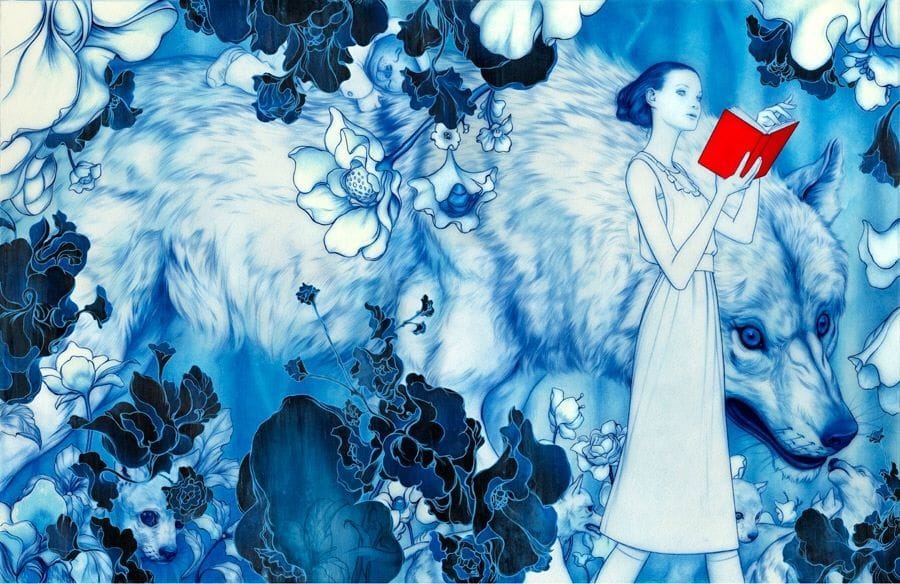
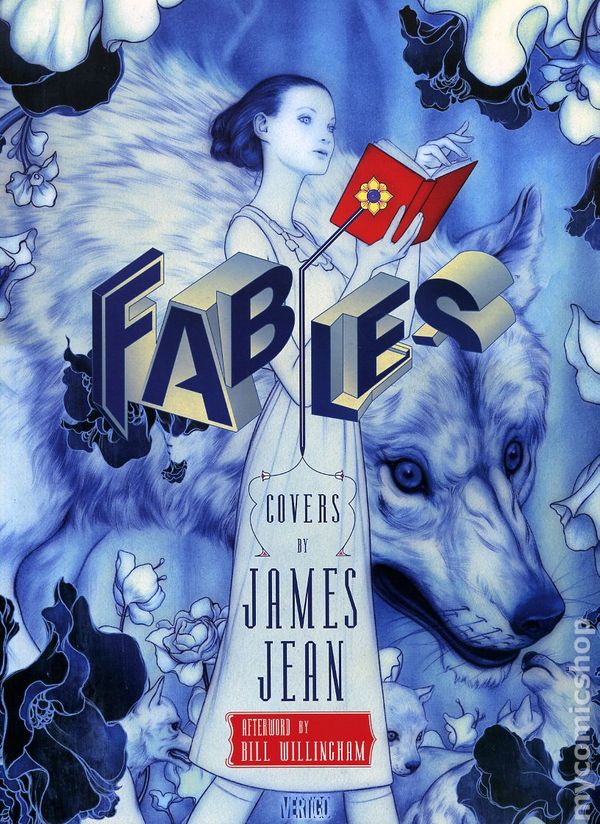

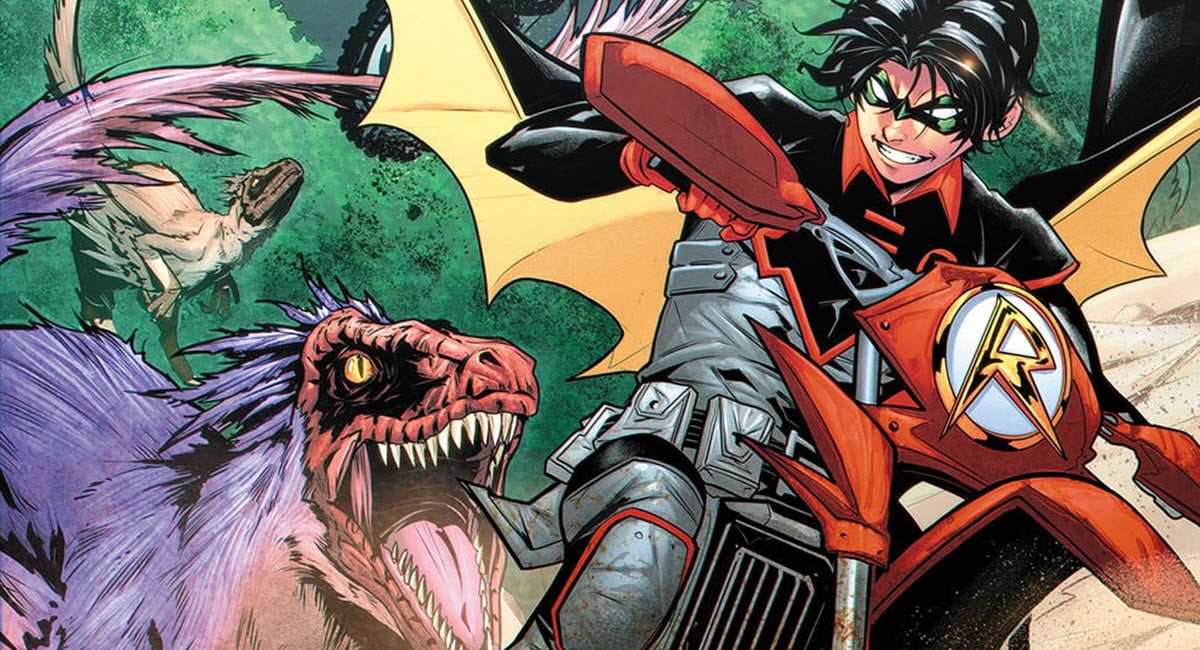
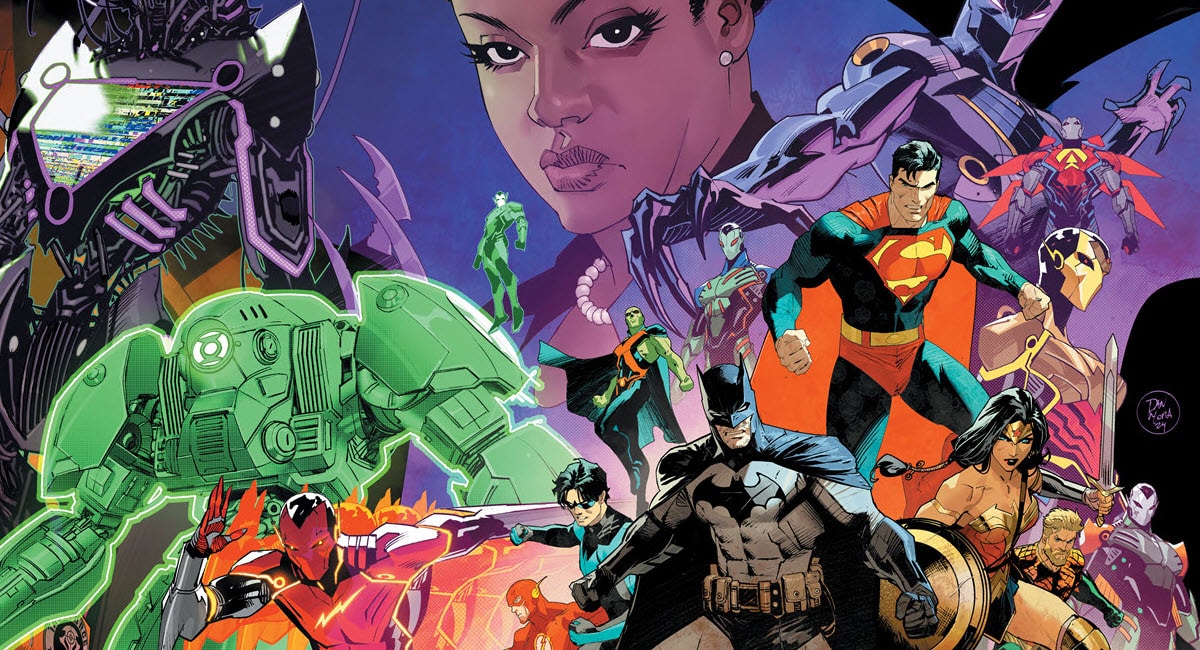
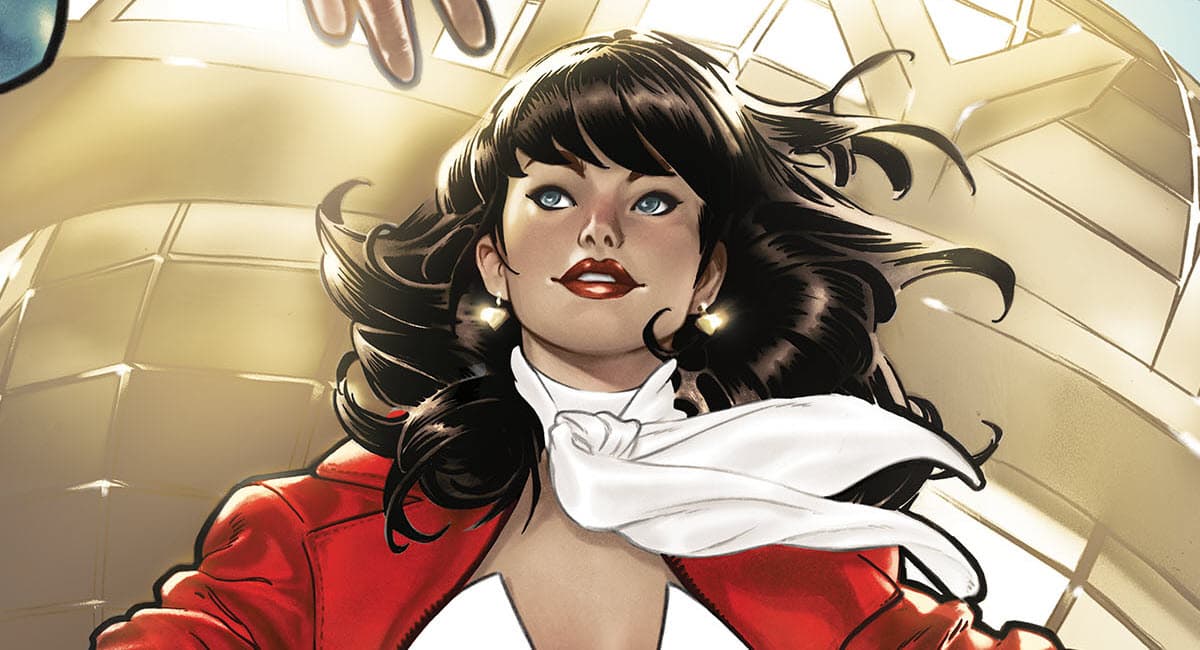


Nose, spite, face.
he is just becoming Comicsgate. Never trust EVS for legal advice.
Yeah, I don’t see this ending well for Willingham on legal grounds.
If Willingham owns the IP he owns the right to release it public domain. There’s nothing DC Comics can do to him, and with every passing day their fight would not be with him anyway. It would be with creators who use Fables characters in new works. DC can’t stop that any more than Edgar Rice Burroughs, Inc., can stop new works featuring public domain Tarzan.
Calling this a “spat” in the headline understates the depth of the dispute. Willingham claims mistreatment by DC dating back many years.
RC
they both own the IP 50/50
also DC owns the TM , 100%
you will be wasting your time
and end up owing a lot of money
If you decide to try something
This is just an excuse to join the KKK Comics-Gate people
They don’t own the IP together. The trademark statement from an issue included in the article makes it clear that Bill Willingham owns the IP. DC shares the copyright with Willingham on the issues of the comics it has published, but Willingham did not put those issues in the public domain. He put the characters and setting in the public domain. People can create new stories in the Fables universe. They can’t republish existing stories.
This has nothing to do with ComicsGate.
He’s done this before, on Elementals. https://www.reddit.com/r/comicbooks/comments/tbrcmp/bill_willingham_declares_his_elementals_series/
The Editor in Chief needs an editor. Every piece I read of hers has a typo.
My thoughts:
1. Never knew Willingham was a CGer. Sad to find out but good to know.
2. I see a lot of wags joking about Willingham putting public domain characters back into the public domain, but as RC said, this puts Willingham’s version of the characters–Bigby as a detective, married to Snow White, etc–into the PD. So, you can continue their adventures using the Vertigo books as a jumping off point. however you like, assuming this maneuver is legal.
3. But wouldn’t that also allow DC to put out their own version of the concept, eventually? Willimgham says he still has contracts with DC, but couldn’t DC put out their own version of Fables written by Tom King? You know, the exact thing Willingham railed against in releasing his versions of the characters? Granted, I’m not a legal scholar and I don’t know what is in those contracts exactly, but if everyone can write their own Fables, DC would fall under that “everyone” too.
Like Willingham, DC is bound to the terms of the contracts it signed with him to publish Fables. That puts the company outside the “everyone” until those contracts end or are terminated.
The likeliest comics publisher to do its own Fables comic books is Dynamite. It has experience adapting characters in the public domain even when there’s an aggressive IP holder in the same space, like Edgar Rice Burroughs, Inc., with Tarzan.
The first impact of this bold decision by Willingham is likely a sales increase of Fables trade paperbacks. DC might find that the more adaptations of Fables “everyone” publishes, the better sales are on the original Willingham comics.
Regardless of whether or not Bill Willingham has any affiliation with comicsgate – and I genuinely have no idea whether or not he does – he is a comics creator who owned his IP (though not copyright on past works) and DC ran roughshod over him. His politics and personality are not, and need not be, at issue here.
If DC did what he says they did – and it looks to be true – that was a bad thing to do and the comics community ought to be on his side on this particular subject. Period. The end.
Whether it will financially benefit him in the end, who knows, but it is a very interesting gambit on his part, and given that he specifically shouts out his longtime co-creators on the book, it seems calculated to be an attempt to benefit them, as they are not bound by his contract.
One would hope that he consulted with his attorneys about this. It will be interesting to see if DC decides to litigate over this–Willingham might end up spending the money on attorneys to fight a lawsuit that he claimed he wanted to save by taking this unilateral action instead. Similarly, I would think there’s a risk of being sued by DC if any third party creators decide to publish their own version of the property–who’s willing to be the first to take that risk? As this article note, it’s not at all clear what Willigham’s decision means in practical terms, other than that he has given up his own rights–doesn’t this mean DC can therefore also just publish new work under their own copyright without Willingham’s participation or approval?
@Randy R, it seems like DC has already been doing whatever they wanted with Fables despite the fact that he was supposed to be consulted. I guess he’s just given up on that, and decided to throw the door open to other interpretations other than DC’s.
I think it could have a genuine impact on DC’s use of Fables, because it will make it impossible for them to license it out to third parties (who no longer need their approval), and if a rival Fables title starts up, especially if it features creators who worked on the original book, or have Willingham’s stamp of approval, fans may prefer those. I know that until and unless something changes, I won’t be buying any new Fables books from DC anymore!
@Randy R: DC has contractual agreements with Willingham that determine what new works it can create for Fables. If those existing contracts had allowed DC to publish new Fables comics without him, it likely would have happened already. Two entities — DC and Willingham — are bound by their deal. The rest of us are unbound and can reuse Fables as if it was created by Shakespeare.
Suing Willingham would not put Pandora back in the box. He has released the Fables IP into the public domain and that can’t be undone. DC is not going to be able to litigate that fact out of existence.
I disagree.
If a judge sides with DC in a court of law, it would more than just put the genie back in the bottle. It would rule Willingham’s declaration null and void.
@Daniel Kalban DC published comics for 21 years that stated “all characters in this issue, the distinctive licenses thereof and related elements are trademarks of Bill Willingham”, Where are you finding wiggle room that would let DC to convince a court he doesn’t own the IP and could release it into the public domain?
Read DC’s recent statement.
Also, look up the ACTUAL file in the copyright office. DC owns part of the copyright.
BW just screwed himself out of spite.
Owning the copyright is different than owning the trademarks. DC’s co-ownership of copyright with Willlingham, when he owns the trademarks to the characters and setting, just means that DC has the right to publish the individual comics and trade paperbacks.
DC does not have any Fables trademarks registered with the USPTO. Fables has always been Willingham’s IP.
Well Jamal Igle’s research on this seems to disprove you.
I think a court would side with DC on this.
WELL-KNOWN LEGAL EXPERT Jamal Igle?!?!
That whether you like someone – based on what others claim and nothing you know yourselves – is more important to many here than actual justice, fairness and the issues raised is Exhibit A in why this industry is in a coma.
At least Igle is doing actual digging to look around.
I don’t see DC contributor Jamal Igle sharing his legal expertise anywhere. I see him on Ex-Twitter sharing a tweet calling Bill Willingham and anyone supporting his public domain move “racists supporting racists.”
I think this is a bold and amazing thing to do. Willingham has my admiration and support.
Bill has never been a part of CG.
The crime that Bill committed was showing receipts of Stephanie Cooke embezzling massive amounts of money from him while working for him as his assistant, causing her to flee back to Canada, and if she ever tries to cross the border again there’s a good chance she’ll be arrested and charged
However Stephanie is a also card carrying member of the milkshake girls Twitter clique, so the fact that Bill called her out and showed receipts (literally)of her crimes has been deemed an act of misogyny and Nazism by Heidi and the rest of the #metoomeangirls. One can only assume that they’re proud of her for robbing him blind, since, after all, he’s a str8 white male, so really she was just claiming reparations.
Interesting
Comments are closed.